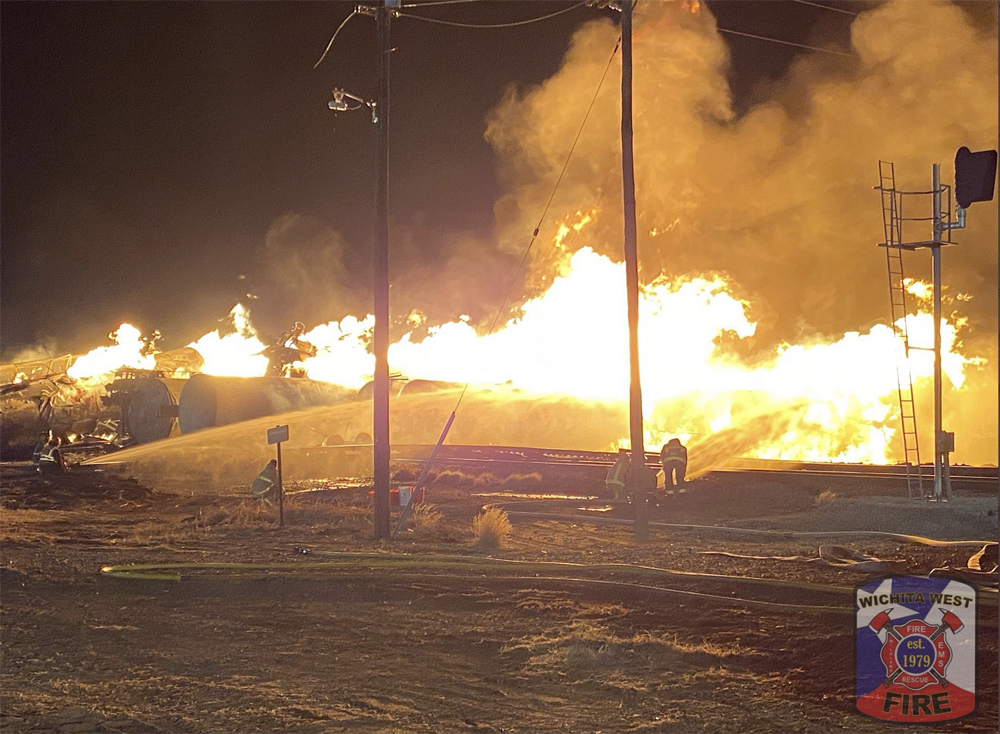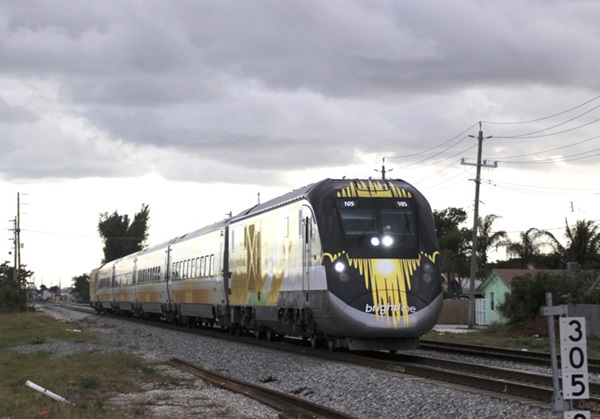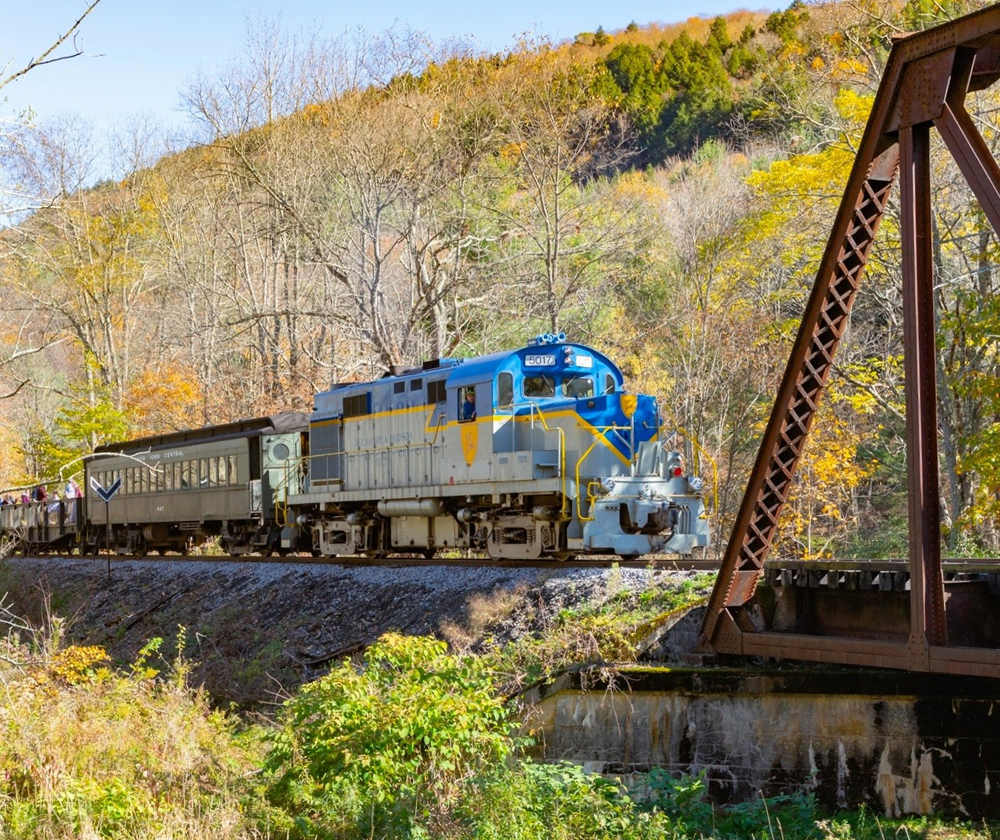
WASHINGTON — The National Transportation Safety Board has called for development of new standards for gaskets used by tank cars in flammable-liquid service as a result of investigation into a January 2022 derailment and fire involving a BNSF Railway Train in Oklaunion, Texas.
The NTSB released a synopsis of its final report on Thursday. [The full report was finally released on Oct. 13, 2023, and is available here.] Because the board was only investigating the performance of the DOT-117J tank cars involved, it did not determine a probable cause of the derailment itself. That incident, on Jan. 8, 2022, involved 37 derailed cars from a a three-locomotive train with 96 cars of denatured ethanol and two buffer cars. BNSF estimated that more than 600,000 gallons of ethanol was released from 28 of the derailed cars, leading to a fire that burned uncontrolled for about four hours. No injures were reported [see “Alcohol tank cars burn …,” Trains News Wire, Jan. 10, 2022].
The NTSB investigation found that the majority of the ethanol was released from equipment such as manway covers and valves that remained intact after the derailment, but was damaged by the subsequent fire, and said more thermally resistant gaskets likely would have reduced the severity of the hazardous-material release. It also found that weld issues may have led to a physical breach in one of the tank cars involved, and that some DOT-117 tank cars may have insufficient thermal protection because of the way specifications for the cars are written.
As a result, the board’s report calls for the Federal Railroad Administration to work with the Pipline and Hazardous Materials Safety Administration to develop bemchmark service and survival temperatures for gaskets in flammable-service tank cars that reflect currently available materials, and for thermal performance standards for gaskets that reflect both normal and accident conditions. It also calls on the PHMSA to revise its DOT-117 specifications to ensure service equipment is thermally protected on non-pressure tank cars, and for the Association of American Railroads to revise its certification procedures for tank-car construction to reflect that revision. Finally, it also calls on the AAR to revise inspections on tank cars to include a standard for rejecting oversized welds such as those involved in the failure of one car in the derailment.
— Updated Oct. 13 at 7:15 p.m. CDT with link to final report, released that day.













